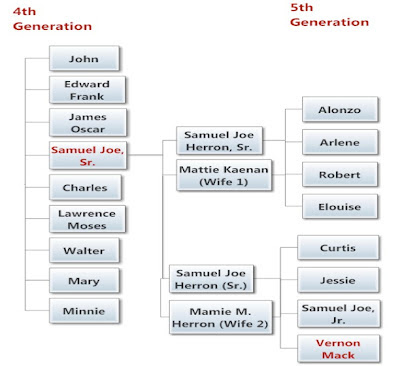By Vernon M. Herron
Spirituals are symbolic yet they are firsthand historical documents which may reveal, motivate, inform or even challenge our theology. One Spiritual in particular, asks the question, were you there when they crucified my Lord? In parts, it goes like this:
Were you there when they crucified my Lord?
Were you there when they nailed Him to the tree (Cross)?
Were you there when they laid Him in the tomb?
Were you there when He rose up (arose) from the grave?
Oh! Sometimes, it causes me to tremble, tremble, tremble.
Were you there when – (It all happened?)
During the last few days, I asked this question to a few of my friends and received the following responses:
“I was not there but I was remembered.”
“Yes”
“No, but there are situations when I feel like I know what it was like.”
“No sir, I was not there.”
“Well, they crucify Him yet today, so maybe I was there.”
When Jesus, the Christ, God’s only Son was whipped with many stripes and crucified on a Cross, He suffered and experienced a SUBSTITIUTIONARY DEATH i.e. death on our behalf for the sins of the world. VICARIOUSLY we were all there, including the past, present and future.
The dictionary gives three distinct meanings of vicarious as a substitution.
.
1 Serving as a substitute for the benefit of another.
2 Suffered by one person as a substitute for another.
3 Experienced the sympathetic participation of another.
Vicariously, we were all there indeed, because He carried the sins of all mankind “with Him there.”
Read Isaiah 53 for a full view of the vicarious sacrifice of Christ. Let me quote selected verses from this chapter.
He was despised and rejected of men; a man of sorrows and acquainted with grief: and we hid as it were our faces from Him; He was despised, and
we esteemed Him not. Surely He hast borne our griefs, and carried our sorrows: yet we did esteem Him stricken, smitten of God, and
afflicted. But He was wounded for our transgressions, He was bruised for
our iniquities: the chastisement of our peace was upon Him; and with
His stripes we are healed…He was numbered with the transgressors and He bare the sin of many and made intercession for the transgressors.
At times, Spirituals challenge our theology and our Biblical knowledge. Notice the Biblical reference for each question raised by the song:
Were you there when they crucified my Lord? John 19:18
Were you there when they nailed Him to the tree (Cross)? John 20:25
Were you there when they laid Him in the tomb? Mark 6:29
Were you there when He rose up (arose) from the grave? Luke 16:3;Acts 10:41.
Oh yes, we were all there!! Let there be no question about it!!!
Spirituals have symbolic, hidden and implied meanings. Each is worthy of examination. Let us look at a few of them.
Wade in the Water
Wade in the water, wade in the water children,
wade in the water, God’s gonna trouble the water.
According to Queen Sound’s Black History, this song relates to both the Old and New Testaments: Exodus 14 and John 5:4, but we also know that Harriet Tubman
sang this spiritual as a warning to runaway slaves. To escaping slaves, the song told them to abandon the path and move to the water. By traveling along the water’s edge or across a body of water, the slaves would throw chasing dogs and their keepers off the scent.
Swing Low, Sweet Chariot
Swing Low, sweet Chariot, coming for to carry me home.
Swing Low, sweet Chariot, coming for to carry me home.
I looked over Jordan and what did I see?
coming for to carry me home-
A band of angels coming after me!
coming for to carry me home.
Songs like “Swing Low” and “Steal Away” referred to the Underground Railroad, the resistance movement that helped slaves escape from the South to the North and Canada. Yet, still they expressed a desire for a return to the mother land of Africa.
The state of Virginia passed legislation forbidding a call for assembly “by beat of drum.” Thus, the slaves developed another secret code. It called for a secret meeting in the woods early in the a.m. Here is the song.
Let Us Break Bread Together
Let us break bread together on our knees,
Let us break bread together on our knees,
When I fall on my knees, with my face toward the rising sun,
O Lord! Have mercy on me.
When asked, were you there when they crucified my Lord? You can say “yes” with an understanding of Jesus, the Christ’s death which vicariously placed us there. When we hear other spirituals, let us think of the implied message.
















